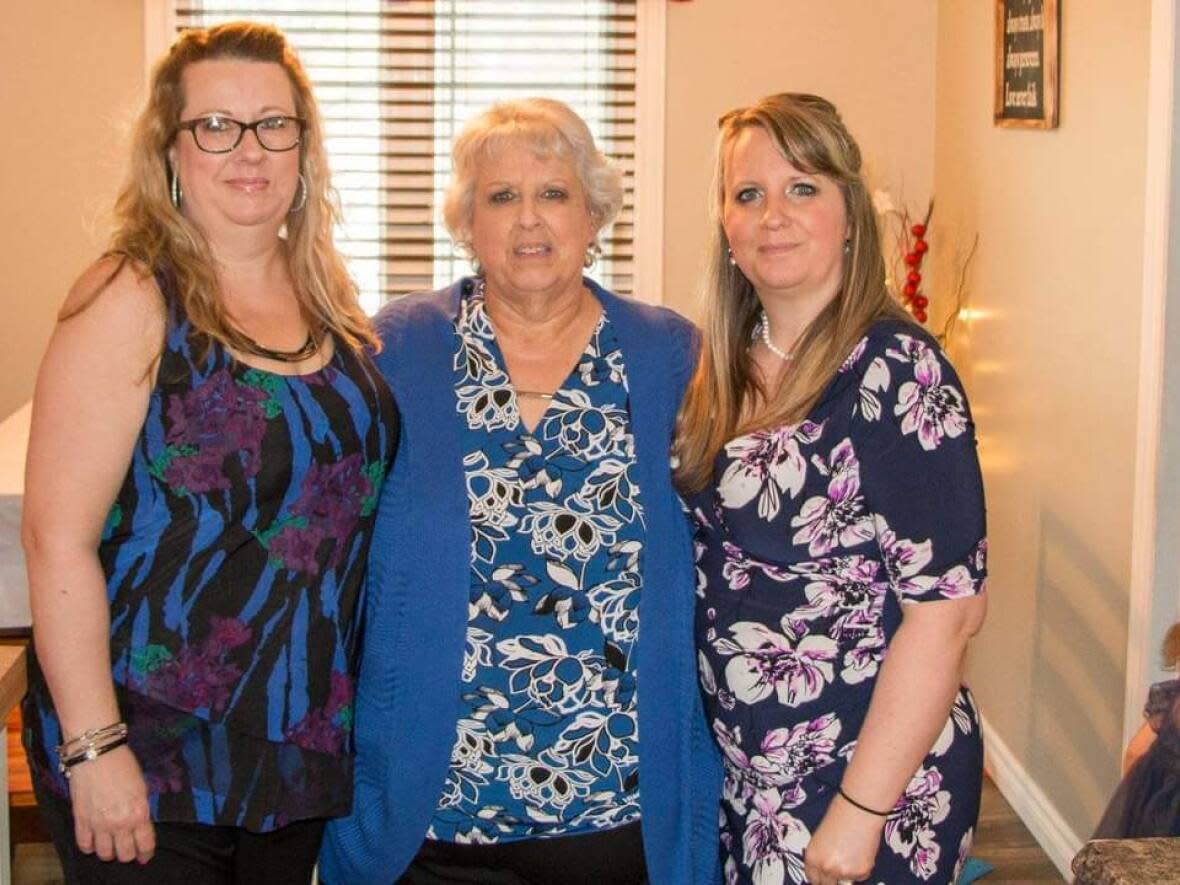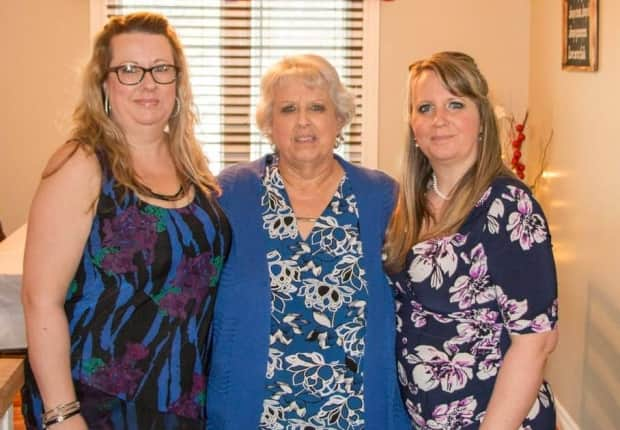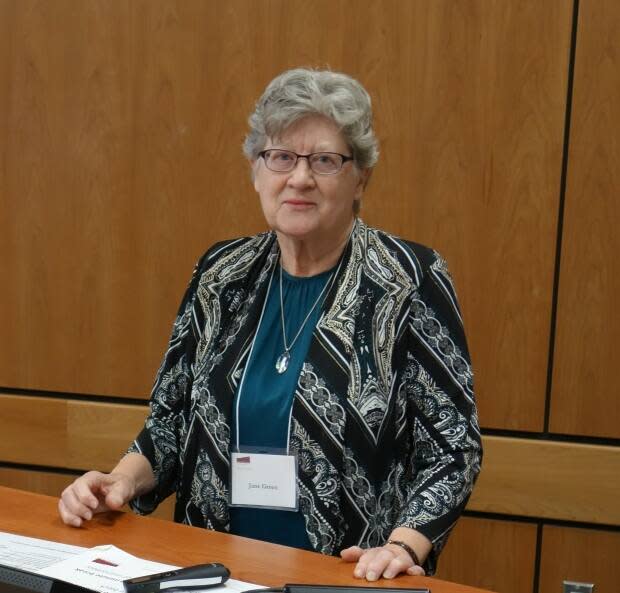N.L.-born woman raising awareness about genetic mutation that causes cancer


A woman with a genetic mutation that puts her at increased risk of cancer — someone who's already lost her mother and sister to it — is encouraging people to seek genetic testing if they think cancer might run in their family.
April Hallikas, who is from Deer Lake and now lives in Alberta, has Lynch syndrome, a genetically inherited condition for which many people in her immediate and extended family have tested positive.
Hallikas's mother died of cancer in 2020 at the age of 67. Her surname was Owens before she was married, and it is her family line that has the genetic mutation. Hallikas's sister died of brain cancer in 2021 at the age of 49.
Hallikas said their deaths have had a big impact on her.
"It's instilled in me this intense fear around it that I never had before," said Hallikas. "So now it's like, daily, if you get a pain in your side, you're wondering, 'Is this it? Is it my turn?'"
Get tested
Hallikas has already had one "turn" with cancer. In the summer of 2022, she was treated for squamous cell carcinoma, a form of skin cancer.
She also had a full hysterectomy at the age of 39 to prevent her from getting endometrial or ovarian cancers, for which people with Lynch syndrome are particularly at risk.
Hallikas said she makes a point of having an annual colonoscopy and endoscopy along with other tests. Since her sister died, she has also paid out of pocket for a scan that isn't covered under provincial health plans, and she intends to keep doing that each year.
Halikas encourages others to seek genetic testing if they suspect there's a family history of cancers.
"Knowledge is power," said Hallikas. "You might want to get that genetic testing done so you can stay on top of screening and try your best to be ahead of it."

In the genes
Just a few decades ago, people like Hallikas and her family wouldn't have even known about their genetic predisposition to getting cancer.
The research that led to the discovery of Lynch syndrome only began in the 1980s, thanks to families from Newfoundland and Labrador and the exhaustive research efforts of geneticist Jane Green at Memorial University.
Green spent a great deal of time visiting families in small communities along Newfoundland's northeast coast, gathering DNA samples and mapping out family genealogies.
Her work, along with work done by geneticists at Johns Hopkins University in Maryland, led to the identification of genetic markers that showed up among cancer patients in more than 50 families in the province.
Green said Newfoundland families were critical to that breakthrough.
"It was the Newfoundland family that I've always referred to as 'Family C' that was the key to finding the first Lynch syndrome gene," said Green, who was made an officer of the Order of Canada for her genetic research.

Best hope is early detection
Identifying that a person has Lynch syndrome doesn't mean that they won't get cancer. There is no gene therapy that can correct the genetic mutation.
But Green echoes Hallikas's view that genetic testing is one of the best ways to ensure early detection of any cancers that do develop.
"If there is a family history of early cancers, if somebody has more than one tumour and relatives with the same tumours, there's a suggestion that it might be the hereditary form of cancer, and then genetic testing is done," said Green.
A positive test for Lynch syndrome would mean regular screening will be a priority.
"The goal is to find any cancers that occur at an early stage when they can be most successfully treated," said Green. "It's early identification and treatment that are really the key to doing well."
As the mother of young children, Hallikas said, she lives in fear that she will again get cancer. But she encourages people to not just take their chances.
"The hope is that, with the regular screenings, you'll be able to get ahead of it and catch it early before it gets to be too much for surgeries or treatments," said Hallikas.


